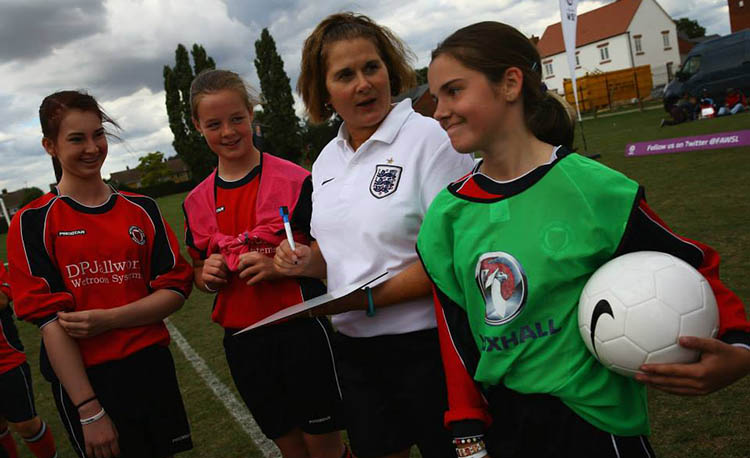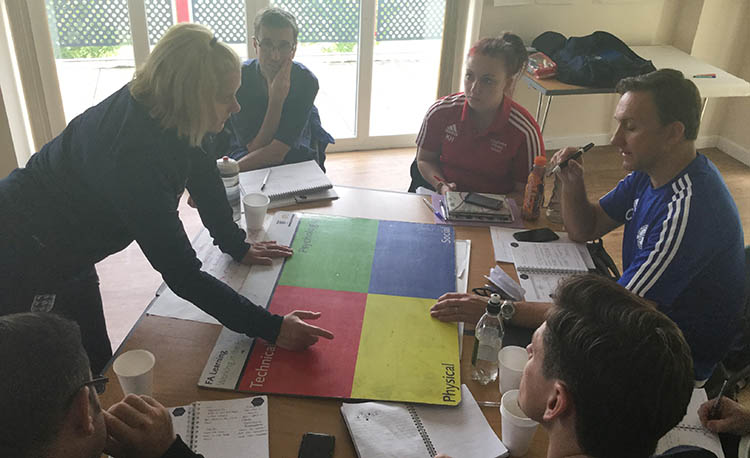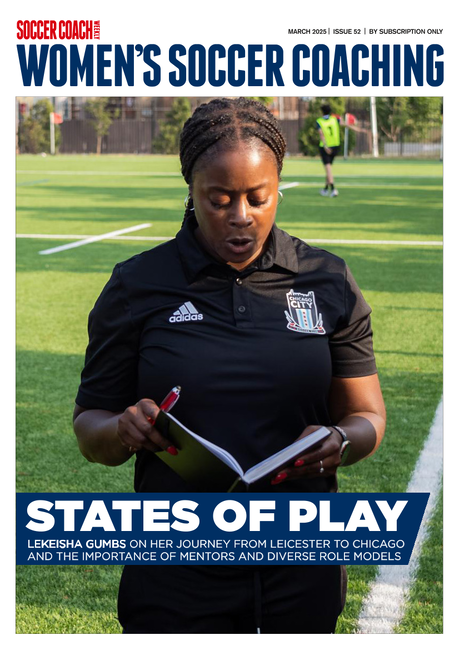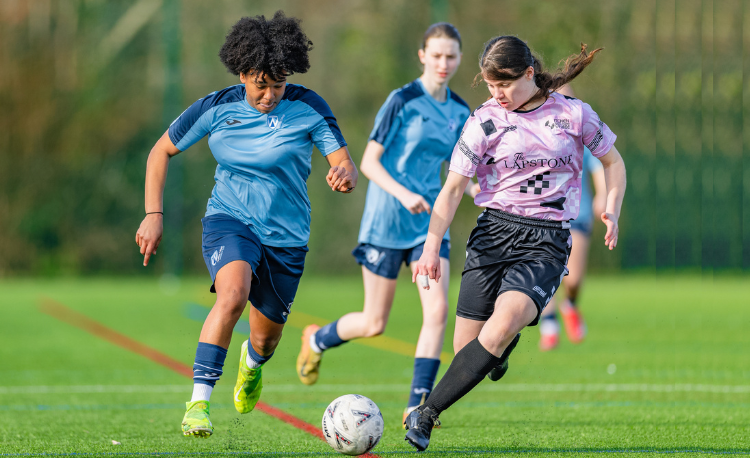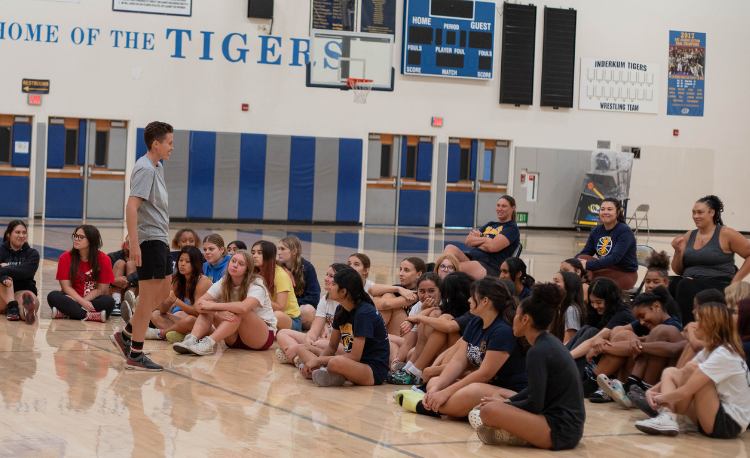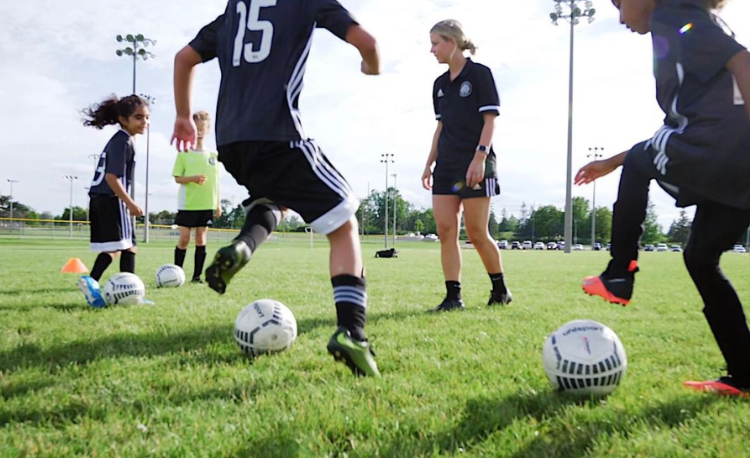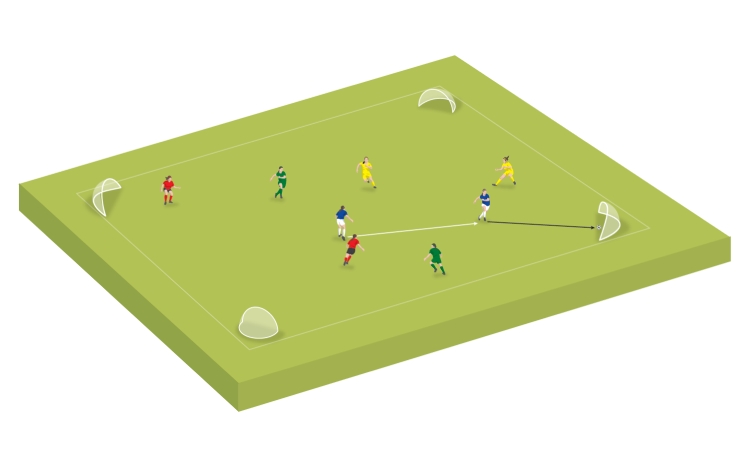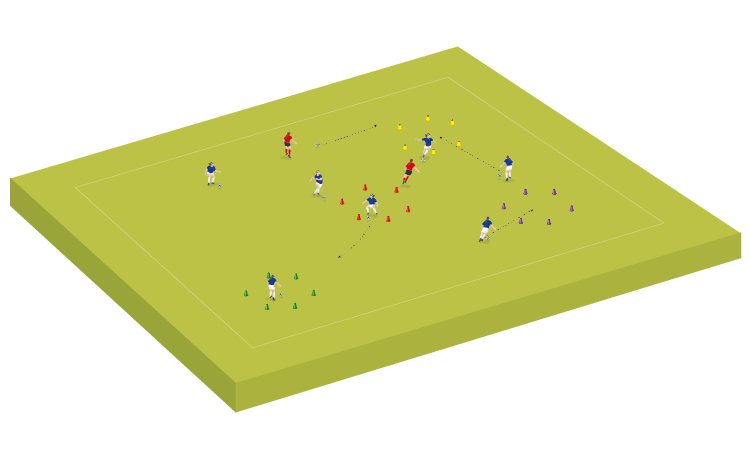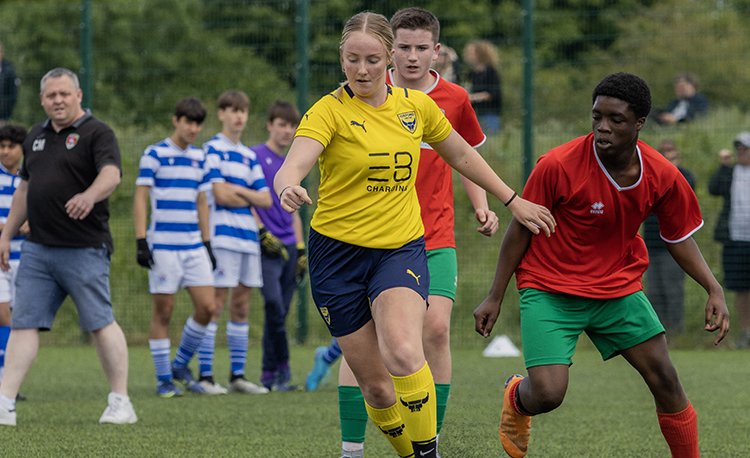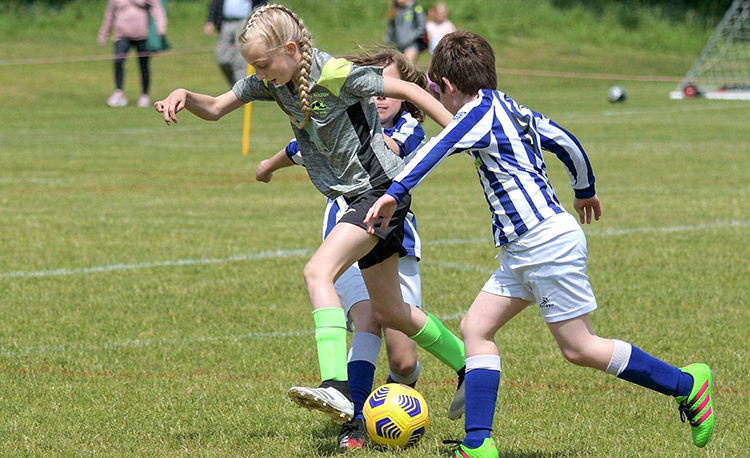You are viewing
2 of your 3 free articles
Establishing yourself in the coaching world
New readers start here - with some crucial advice that coaching tutor Jackie Bushell wishes she had been able to give herself when starting her journey
When I was asked to contribute this article on supporting new and young coaches, I contemplated what to write.
Then it hit me – what advice would I give to myself if I was just starting my coaching pathway?
Here is what I would be telling the younger me if I was able to have my time again...
Know yourself
As a young coach you may be guided or shaped by the people who have impacted on your life. Essentially, this is how our core values and beliefs are formed.
I believe that if you have a greater understanding of yourself, and the reasons why you coach, you will be better placed to progress.
Ask yourself the following questions:
- Why do you want to coach and how will you achieve this?
- What coaching qualifications do you have?
- Who are your coaching role models?
These questions will help start a personal development plan, something that can provide clear structure for your goals and aspirations.
Personal development is very important. It is key that you evaluate your own strengths and weaknesses and develop a plan to improve both your technical and behavioural skills relevant to a career in the coaching industry.
Where and how do you start you coaching journey? As with any career, you will need qualifications and experience.
In England, the Football Association is currently running the FA Playmaker award. It is a free, entry-level course perfect for anyone interested in taking a more active role in grassroots football.
Also in the UK, the Open University has a number of free courses related to sport coaching which will help develop your understanding of self and coaching others. UCFB, based in London and Manchester, has a number of degree courses that could support you if you are considering a career in the soccer industry.
Big takeaway: Don’t be in a rush to “collect” your coaching badges. Consolidate your learning - you should see coaching as a journey, not a race.
Experiences
Every experience shapes us - we will retain information, store it and use it again. So, my advice for anyone starting on their coaching journey is to go out and coach.
Sounds simple. But what I am suggesting is to try and work with different age groups and genders, in different environments and different sports.
As a coach you will need to function effectively in a variety of situations, develop reflective skills and identify which theories and strategies are most applicable when working in a specific coaching context.
You will need to be adaptable, especially if you consider the only constant in life is change.
Experiencing different environments will help craft your adaptability. An after-school club is a totally different coaching experience to delivering a Football in the Community holiday course, which in turn is vastly different to coaching a grassroots team.
The list could go on but my point is: gain as much experience as you can by delivering, observing or supporting a variety of sessions and/or age groups.
This, in turn, will help you to find your niche. For example, people perceive that I prefer to work within the foundation phase (ages 5-11), but in truth I enjoy the complexity of working within the youth development phase (12-16) - there is always something to stretch, challenge or amaze me.
Find your own happy place – the more you experience the easier it will be to find. Coaching will open many doors for you - be confident enough to step though those doors and grab all the information you can.
Big takeaway: Girls United is a non-profit organisation that runs a number of clubs and coaching programmes internationally, empowering girls in local communities through football. They run a volunteer programme in Mexico which I had the privilege to support.
Connecting
Coaching, according to John Whitmore and Tim Gallwey, is "unlocking a person’s potential to maximise their own performance. It is helping them to learn rather than teaching them”.
A key skill in coaching is the ability to build relationships. To develop players, you need to be able to understand and connect with the person.
You won’t just be coaching a team - you will be supporting, developing and guiding a number of individuals. It is important therefore to build a connection with your players.
Forward-thinking coaches understand that forming strong coach-player relationships are as important as achieving wins.
Building relationships with your players will help you understand what motivates or drives them as individuals. It can also highlight a personal, caring approach to support development.
There are several skills a coach can develop that can help build strong relationships. These include communication skills, use of positive reinforcement, the ability to gain trust and a willingness to be available to players who may need advice or encouragement.
Big takeaway: Take the time to find out what your players like, why they play and who their friends in the team are.
Related Files
Putting it all together
Research indicates that having a clear plan, written out and reviewed at regular intervals, leads to greater likelihood of achieving the desired objective.
How does this relate?
Firstly, consider the Personal Development Plan I mentioned at the start of the article. Where do you want to go and how are you going to get there?
You can set targets, plan observation and attend CPD events - but as French writer Antoine de Saint-Exupéry once said: “A goal without a plan is just a wish”.
"As writer Antoine de Saint-Exupéry said: ’A goal without a plan is just a wish...’"
Be specific, as it will help you attain your goals. This can also be true of session planning and design.
As a volunteer coach, the constant demands on your time from work, family, players and parents - to name a few - creates a challenge in finding the time to plan for training sessions. Planning can sometimes be sacrificed in favour of just putting a session on.
This does not always work in our favour as we may copy-and-paste a session from the internet which clearly is not suitable for our players’ needs or ability.
Having a clear understanding of what your session may look like and consist of will help both you and your players in the long run.
Some things to consider:
- Have a clear learning focus and What will your session help the players get better at?
- What does success look like for you and your players? Are your expectations realistic and relevant to the players’ age, maturation, and
- Plan for individual players as well as the Put your session into context for these players.
- What areas of the pitch are you going to use?
- How many players do you have in your squad? How many will be at training?
- What equipment do you need?
- Challenges and questions for your players
- Review - reflection is key for development
A final and crucial point regarding session planning is that it allows us to build up a knowledge base of how, why, what, where and when, linked to the players and the environments we coach in.
Big takeaway: Don’t “copy-and-paste” - copy, change and adapt to the needs of your team and the individuals within.
Newsletter Sign Up
Newsletter Sign Up
Discover the simple way to become a more effective, more successful soccer coach
In a recent survey 89% of subscribers said Women's Soccer Coaching makes them more confident, 91% said Women's Soccer Coaching makes them a more effective coach and 93% said Women's Soccer Coaching makes them more inspired.
*includes 3 coaching manuals
Get Inspired
All the latest techniques and approaches
Women's Soccer Coaching offers proven and easy to use soccer drills, coaching sessions, practice plans, small-sided games, warm-ups, training tips and advice.
We've been at the cutting edge of soccer coaching since we launched Soccer Coach Weekly in 2007, creating resources for the grassroots youth coach, following best practice from around the world and insights from the professional game.
